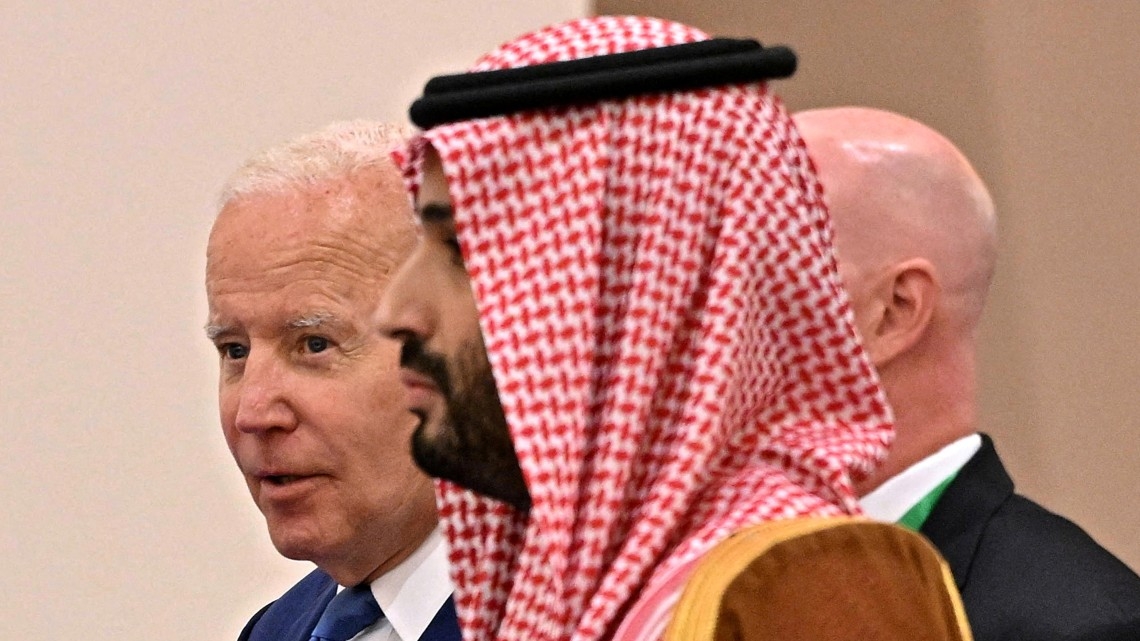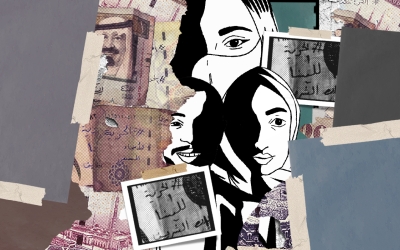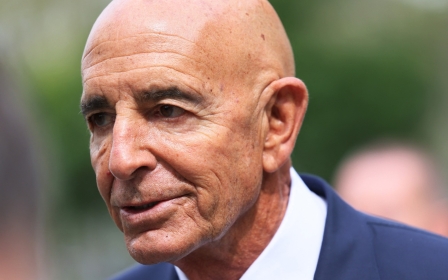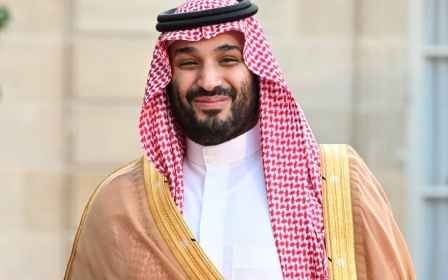Biden 'betrays' own words by giving Saudi crown prince immunity in Khashoggi killing, says Hatice Cengiz

US President Joe Biden has spoken volumes about the importance of human rights and holding the killers of Jamal Khashoggi accountable. But by giving Saudi Crown Prince Mohammed bin Salman diplomatic immunity, he has betrayed his own rhetoric, Khashoggi's fiancee, Hatice Cengiz, has told Middle East Eye.
In response to being asked to weigh in on a lawsuit filed by Cengiz and Democracy for the Arab World Now (Dawn) against the Saudi crown prince and several other officials for the murder of Khashoggi, the administration said it "takes no view on the merits of the present suit" and that it condemned the murder.
However, it concluded that the crown prince's recently appointed role as prime minister was grounds for immunity.
"The State Department recognises and allows the immunity of Prime Minister Mohammed bin Salman as a sitting head of government of a foreign state," the court filing reads.
For Cengiz, the decision was demoralising after having spent more than four years seeking justice for her fiance's murder, especially considering that Biden said that he would make Saudi Arabia "pay the price" for the killing of Khashoggi, a Middle East Eye and Washington Post columnist.
"This decision is more than disappointing. It will set a very bad example not only for Jamal but for all justice seekers," Cengiz, an academic and writer, told MEE.
"If even the United States will not serve to bring criminals to justice, who will? Biden betrayed his own word. He has used 'democracy and human rights' as words or slogans everywhere. But [there's] not real action on it."
Cengiz added that the decision is "an unforgettable turning point for the entire humanity of the world".
Khashoggi was murdered in the Saudi consulate in Istanbul on 2 October 2018, in an operation that both Turkish intelligence and the CIA have said was sanctioned by the crown prince.
Sarah Leah Whitson, Dawn's executive director, said she never had any illusions that the Biden administration would change Washington's approach to "supporting dictatorships" in the Middle East.
"But the murder of Jamal Khashoggi is something that President Biden staked his own credibility on. He went out of his way to promise to the American people and to the world, that he would hold the murderers of this crime accountable, and hold Mohammed bin Salman accountable," Whitson told MEE.
"And so it's just super-ironic that he's gone and done the exact opposite by suggesting immunity for him in our lawsuit."
Human rights 'not a priority'
The Biden administration's decision comes at a time of tense relations between the US and Saudi Arabia.
'This lawsuit will continue to be a thorn in Mohammed bin Salman's side'
- Sarah Leah Whitson, Dawn
After Saudi Arabia and Opec+ decided to cut oil production by two million barrels last month in a decision condemned by Washington as siding with Russia and helping Moscow retain oil profits amid a months-long war effort in Ukraine, the Biden administration said it was seeking a full reevaluation of ties.
Yet experts previously told Middle East Eye that the administration's reaction to the oil output decision showed that Washington was not prioritising human rights in Saudi Arabia despite placing human rights at the centre of its foreign policy.
"Human rights was not a priority. I think it was campaign promises," Saudi activist Lina al-Hathloul previously said in an interview with MEE.
And following Biden's visit to Saudi Arabia in July, where Biden bumped fists with Mohammed bin Salman, Riyadh made a number of moves deplored and condemned by human rights groups. In October, it sentenced an American citizen to 16 years over a series of tweets, and also sentenced multiple Saudi women to decades in prison for their social media posts.
Justice is not dead yet
While the Saudi crown prince's removal from the lawsuit is a blow to directly holding him accountable for the killing, Whitson said that the legal battle is far from over.
There are still 20 other co-defendants in the case, including Saud al-Qahtani, a top confidant and senior adviser to Mohammed bin Salman.
The defendants filed a motion to dismiss the lawsuit last year, and the court has yet to rule on this filing. If the court rejects the motion and allows the case to proceed, it would then move to the discovery phase, which would allow Dawn to request answers, evidence, and even the deposition of the Saudi officials named in the suit.
If that happens, it "means that the truth of the evidence about Mohammed bin Salman's personal role in the murder of Khashoggi will continue to come out and this lawsuit will continue to be a thorn in Mohammed bin Salman's side," Whitson said.
"They can choose to not cooperate with the court, but that would be a pretty embarrassing look for Saudi Arabia."
Whitson added that if the case proceeds and the Saudi officials named choose not to cooperate, it would result in a default judgment – a similar result to the lawsuit against Libyan general Khalifa Haftar in July, in which Haftar was found liable for war crimes in a Virginia court.
"I still believe in justice, that it will happen one day. Sometimes it can take a long time. The process itself is also important. Continuing to fight is also a message. The days to come will show where and how we will find justice," Cengiz said.
Middle East Eye propose une couverture et une analyse indépendantes et incomparables du Moyen-Orient, de l’Afrique du Nord et d’autres régions du monde. Pour en savoir plus sur la reprise de ce contenu et les frais qui s’appliquent, veuillez remplir ce formulaire [en anglais]. Pour en savoir plus sur MEE, cliquez ici [en anglais].





